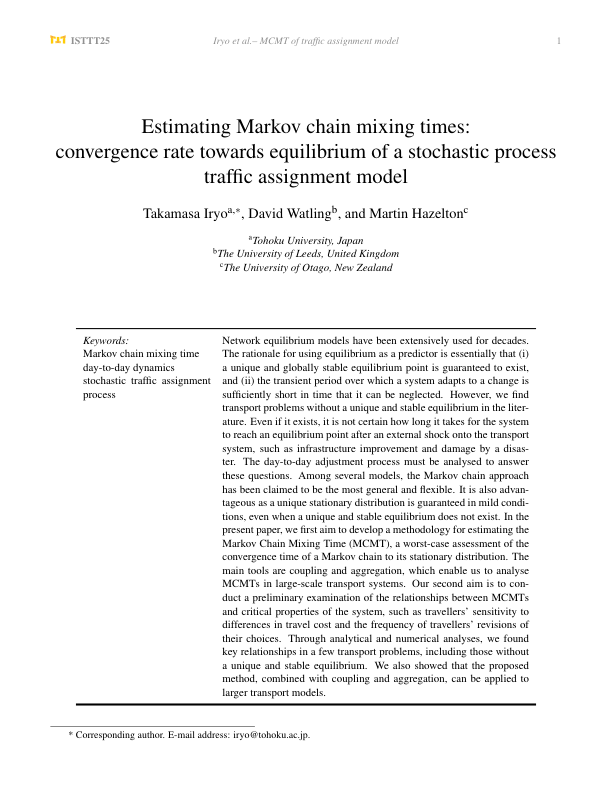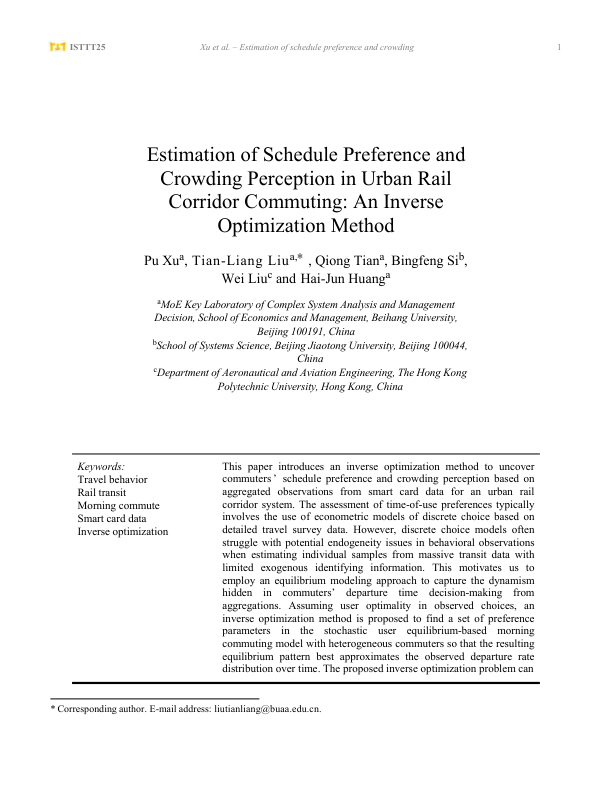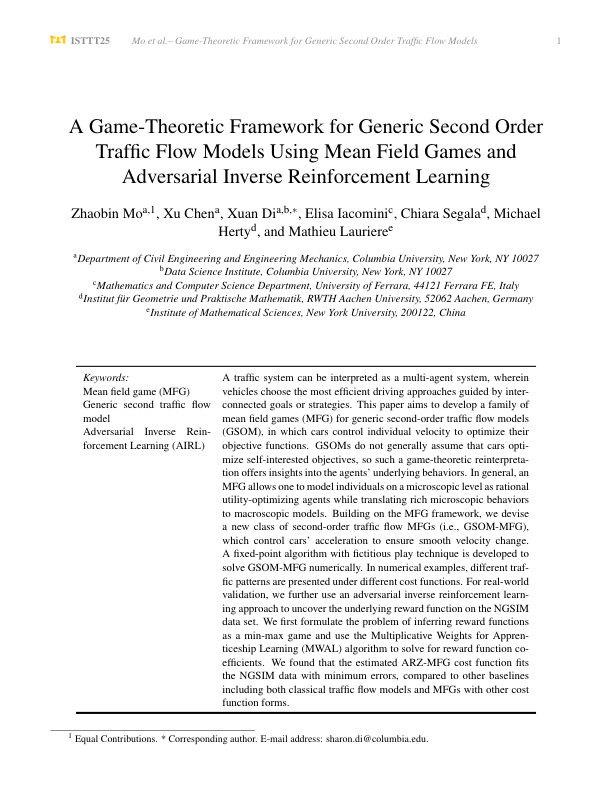Podium Session 1: Alleviating Bus Bunching via Modular Vehicles
Title: Alleviating Bus Bunching via Modular Vehicles
Authors: Yuhao Liu, Zhibin Chen, Xiaolei Wang
Abstract: The notorious phenomenon of bus bunching prevailing in uncontrolled bus systems produces irregular headways and downgrades the level of service by increasing passengers’ expected waiting time. Modular autonomous vehicles (MAVs), due to their ability to split and merge enroute, have the potential to help both late and early buses recover from schedu...
Keywords: Bus bunching; Modular vehicle; Dynamic system; Deep reinforcement learning










